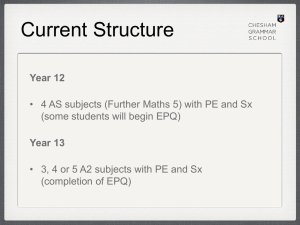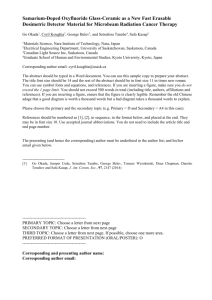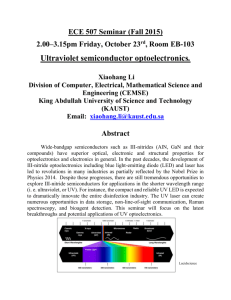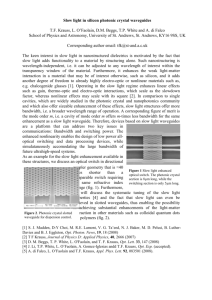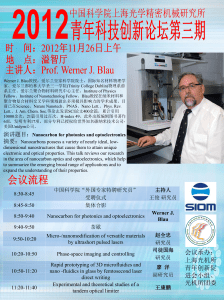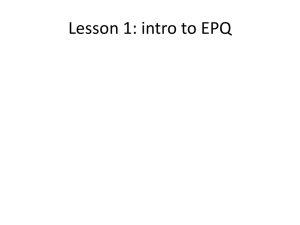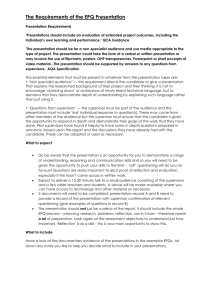Abstract - icoopma 2008
advertisement
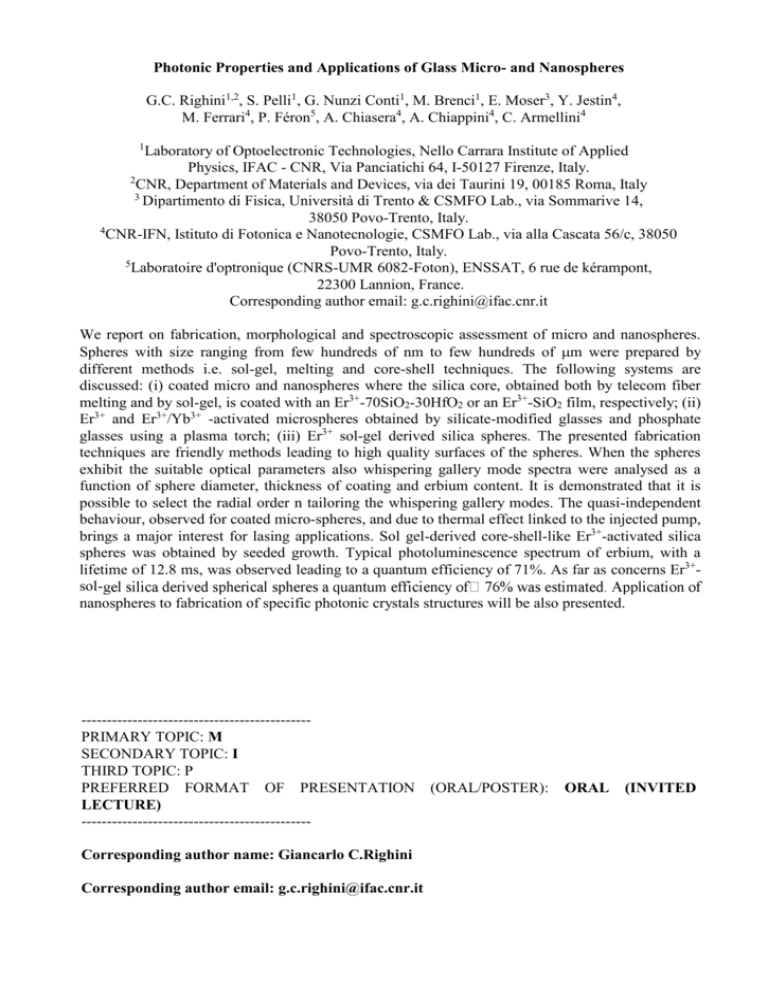
Photonic Properties and Applications of Glass Micro- and Nanospheres G.C. Righini1,2, S. Pelli1, G. Nunzi Conti1, M. Brenci1, E. Moser3, Y. Jestin4, M. Ferrari4, P. Féron5, A. Chiasera4, A. Chiappini4, C. Armellini4 1 Laboratory of Optoelectronic Technologies, Nello Carrara Institute of Applied Physics, IFAC - CNR, Via Panciatichi 64, I-50127 Firenze, Italy. 2 CNR, Department of Materials and Devices, via dei Taurini 19, 00185 Roma, Italy 3 Dipartimento di Fisica, Università di Trento & CSMFO Lab., via Sommarive 14, 38050 Povo-Trento, Italy. 4 CNR-IFN, Istituto di Fotonica e Nanotecnologie, CSMFO Lab., via alla Cascata 56/c, 38050 Povo-Trento, Italy. 5 Laboratoire d'optronique (CNRS-UMR 6082-Foton), ENSSAT, 6 rue de kérampont, 22300 Lannion, France. Corresponding author email: g.c.righini@ifac.cnr.it We report on fabrication, morphological and spectroscopic assessment of micro and nanospheres. Spheres with size ranging from few hundreds of nm to few hundreds of m were prepared by different methods i.e. sol-gel, melting and core-shell techniques. The following systems are discussed: (i) coated micro and nanospheres where the silica core, obtained both by telecom fiber melting and by sol-gel, is coated with an Er3+-70SiO2-30HfO2 or an Er3+-SiO2 film, respectively; (ii) Er3+ and Er3+/Yb3+ -activated microspheres obtained by silicate-modified glasses and phosphate glasses using a plasma torch; (iii) Er3+ sol-gel derived silica spheres. The presented fabrication techniques are friendly methods leading to high quality surfaces of the spheres. When the spheres exhibit the suitable optical parameters also whispering gallery mode spectra were analysed as a function of sphere diameter, thickness of coating and erbium content. It is demonstrated that it is possible to select the radial order n tailoring the whispering gallery modes. The quasi-independent behaviour, observed for coated micro-spheres, and due to thermal effect linked to the injected pump, brings a major interest for lasing applications. Sol gel-derived core-shell-like Er3+-activated silica spheres was obtained by seeded growth. Typical photoluminescence spectrum of erbium, with a lifetime of 12.8 ms, was observed leading to a quantum efficiency of 71%. As far as concerns Er3+solnanospheres to fabrication of specific photonic crystals structures will be also presented. --------------------------------------------PRIMARY TOPIC: M SECONDARY TOPIC: I THIRD TOPIC: P PREFERRED FORMAT OF PRESENTATION LECTURE) --------------------------------------------Corresponding author name: Giancarlo C.Righini Corresponding author email: g.c.righini@ifac.cnr.it (ORAL/POSTER): ORAL (INVITED TOPICS Please choose primary and secondary topics A B C D E F G H I J K L M N O P Q R S T U V W X Optical properties of materials A1 General A2 Crystals A3 Polycrystalline bulk and film A4 Amorphous and organics A5 Nanostructures, including photonic crystals Preparation and Characterization of Quantum Dots, Quantum Wires and Other Quantum Structures Excitonic Processes Luminescence, Phosphors, Scintillators and Applications Photoinduced Effects and Applications Photoconductivity and Photogeneration Nonlinear Optical Effects and Applications Electro-Optic Effects and Applications Glasses for Optics, Optoelectronics and Photonics (including ZBLAN, fluozirconate, oxyfluoride and other glasses) Polymers for Optics, Optoelectronics and Photonics Semiconductors for Optoelectronics J1 Semiconductors for Optoelectronics: Wide Bandgap J2 Semiconductors for Optoelectronics: Narrow Bandgap J3 Semiconductors for Optoelectronics: Heterostructures Light Emitting Devices (including organics) Photonic and Optoelectronic Materials and Devices (including devices for telecommunications, laser and detectors) Optical Storage Photovoltaics (materials and devices, and their properties) Waveguides and Integrated Photonics Silicon Photonics Optical Fibers and Fiber Sensors Experimental Techniques Femtosecond Spectroscopy Teraherz (THz) techniques, including materials, emitters and detectors Defect Spectroscopy Plasmons and Surface Plasmons Selected Topics (e.g. Photocatalysts in Materials, Materials for Energy Conversion etc) Abstract submission Deadline: 17 March, 2008 Note: Late abstracts may be considered at the discretion of the conference organizers. Abstract acceptance: 4 April, 2008 Manuscripts: To be submitted either before or during the conference using the instructions on the conference website
